Food is not only a symbol of life, but also a symbiotic relationship between consumers and producers where both actors should equally benefit and adhere to human rights standards rather than commodity’s price tag.
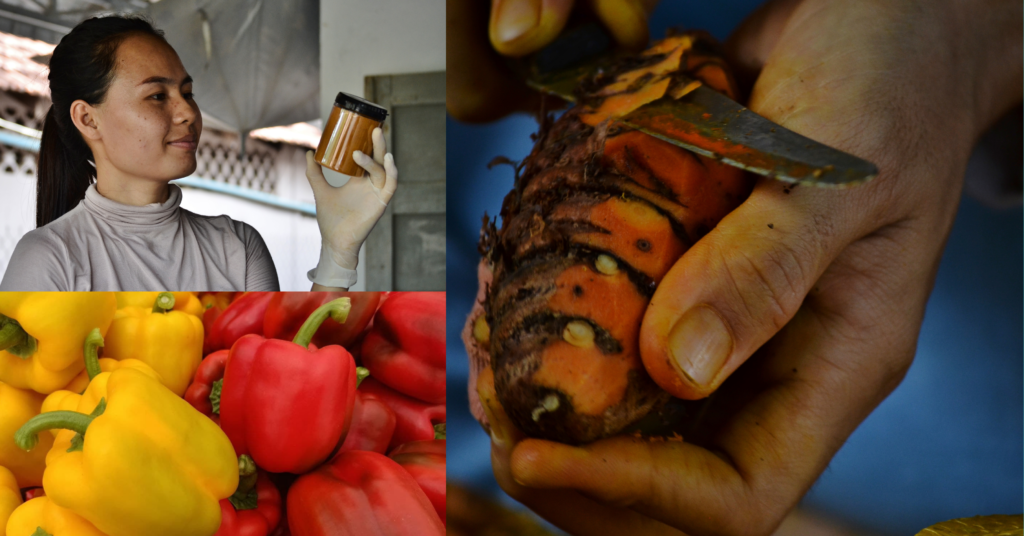
Every step of the food system draws sweat and tears. Understanding that system and taking our consumption habits into consideration in an ethical manner has a great impact on our lives and the lives of those who are involved in each process of the system, especially those of women, whose roles are often made invisible and not recognised.
During the last UN Food Systems Summit, Secretary-General Antonio Guterres suggested that “Food should be viewed as a human right, not as a commodity”.
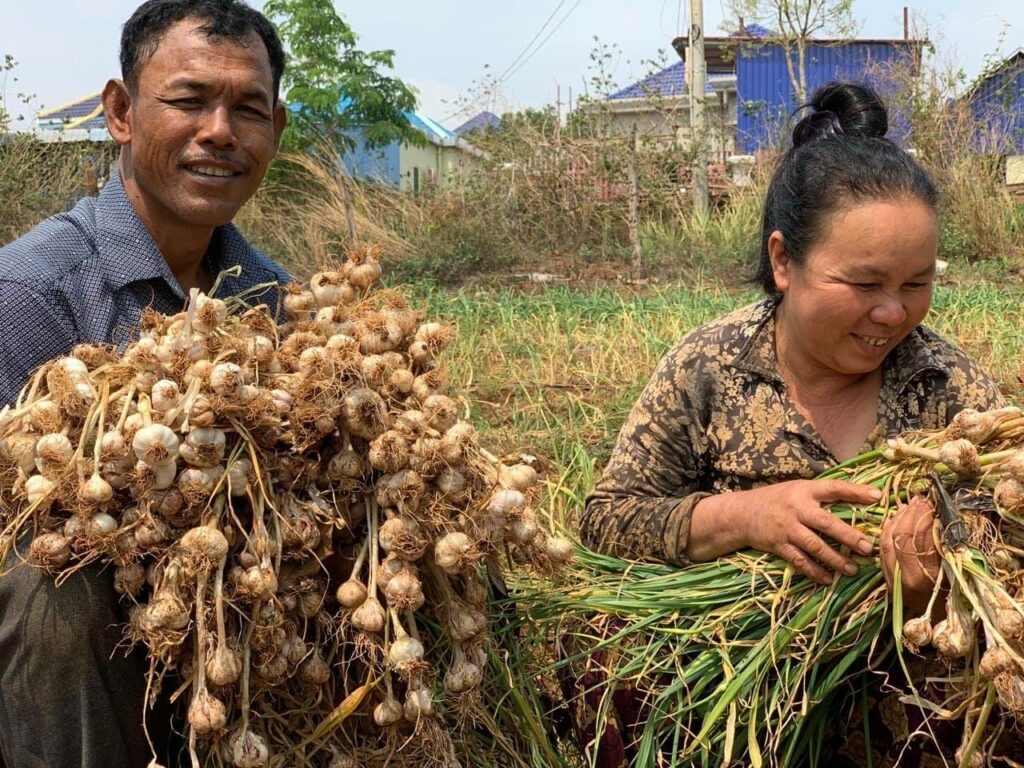
According to a publication by the Borgen Project, about 15% of Cambodia’s population suffers from undernourishment while 32% of children younger than five years old experience stunting. Their healthy development has been prevented by a lack of access to nutritious food and common characteristics of hunger in the Kingdom: undernourishment, natural disasters, seasonal agricultural shortages, and even the basic need of a proper meal.
Additionally, internal research about food security and eating habits from MHOP(e), a project working to support the promotion of justice in the food provision system in Cambodia, found that as a result of the COVID-19 pandemic, economic conditions have punched people to the brink, forcing them to take drastic steps like borrow for food, reduce food intake and choose low-cost and unhealthy food options. This clearly reflected in the old Khmer saying about life and food security “រកព្រឹក ខ្វះល្ងាច” (keeping our heads above water) meaning it is a painstaking struggle just to earn enough money for three meals per day.
Regarding this statement, Paula Assubuji, a director of Heinrich Böll Foundation Cambodia working on Democracy, Human Rights and Sustainable Development understands that, as in the definition of food security, “all people, at all times, must have physical, social, and economic access to sufficient, safe, and nutritious food to meet their dietary needs and food preferences for an active and healthy life.”
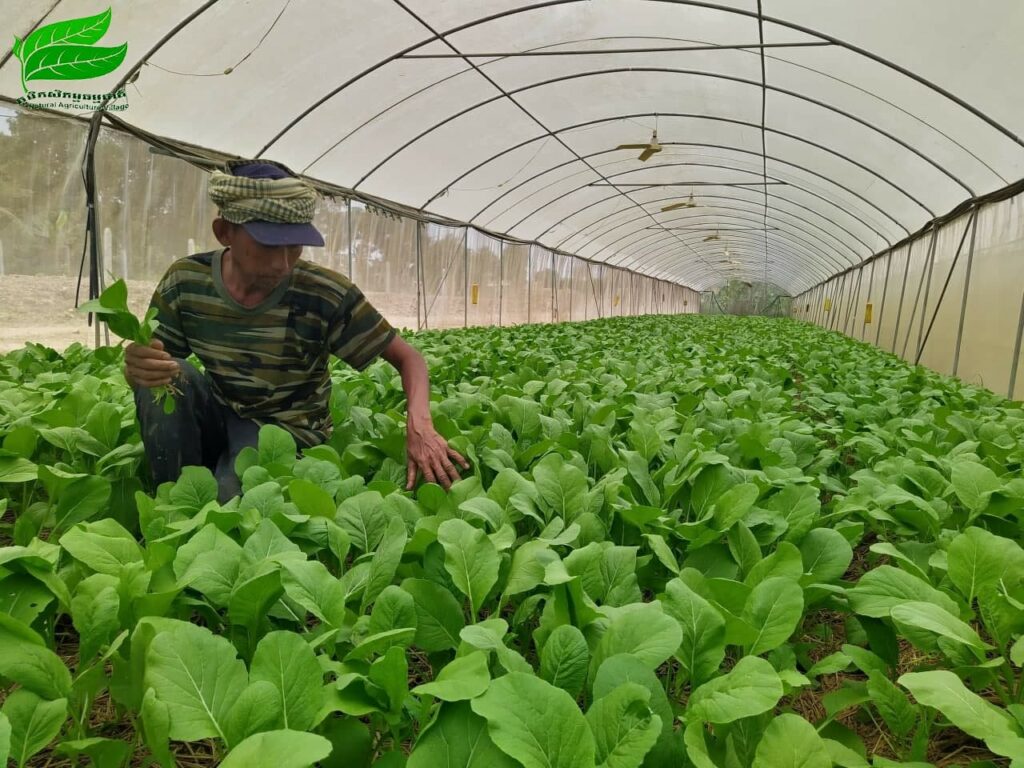
And if we take a closer look at Cambodia’s food system — a complex series of activities involving the production, processing, transport, and consumption of food — women remain invisible, despite their crucial role in it. Rather than being viewed as working towards financial stability and social development, women’s fundamental role in providing food security and maintaining the role of caregiver, being responsible for most of the housework and raising children, is usually considered an expectation of their traditional gender role.
According to the Asian Development Bank, “women are estimated to receive only 10% of [the benefits of] all agricultural services, and on average households with female heads have less land and less access to agricultural equipment, tools, and communication services.”
Within this gender inequity, Cambodian women still play a major role, starting from cooking for their families on a daily basis and ensuring their nutrition as an unpaid task at home, to providing quality livelihoods through their work in the rice field.
Not only do women face an invisible wall that impedes their access to needed resources, but there is also an imbalance in purchasing power, constructed by a series of interrelated social, economic, and cultural factors that pushes them into subordinate roles, and hampers their development and ultimately societies as a whole.
Embracing the responsibility for food security while working to push the perception of women’s contributions beyond traditional gender roles is Mrs. Bun Sieng. Recognising a gap in the market for local farmers, she founded Natural Agriculture Village, a business selling retail and wholesale agricultural products.
“I was always interested in this industry and I know it is hard for local farmers to find a reasonable market to sell their product,” Bun said. “So I wanted to do something that is useful for me and everyone.”
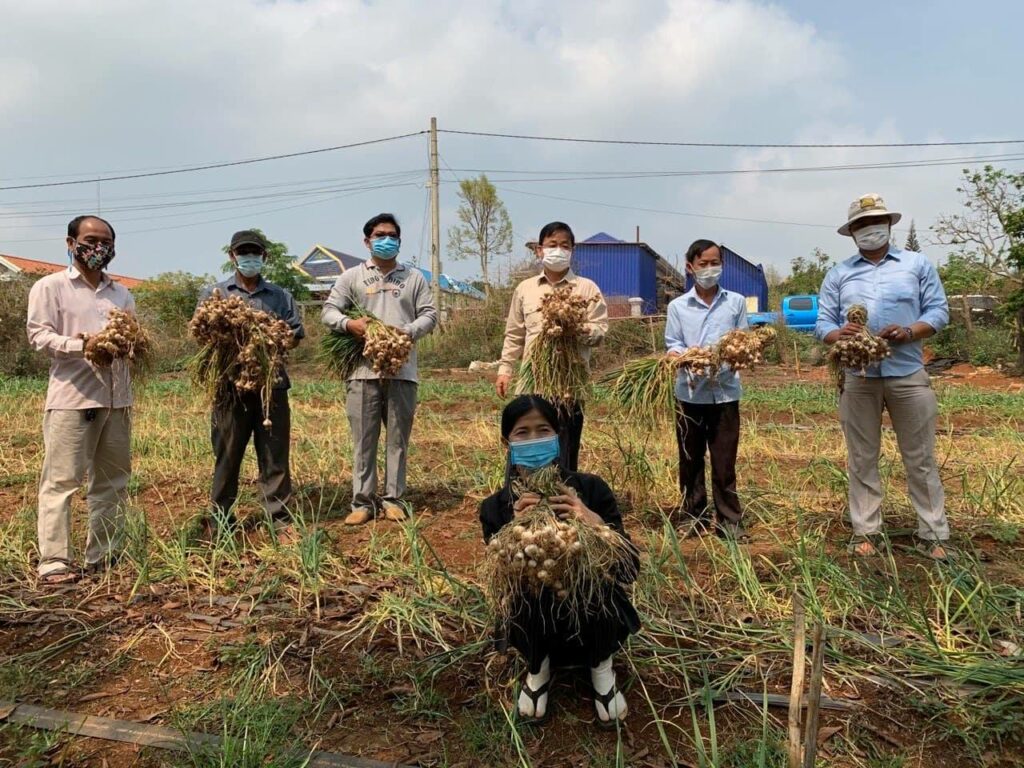
Her passion for agriculture is not only helping her to become financially independent as a woman but also generates consistent income for more than 200 families from ten different provinces through contract farming. Providing natural products and building a community for ethical producers and consumers is the ultimate goal of her entrepreneurship.
“I hope to provide quality and natural agricultural products to all Cambodian families,” she said. “And to encourage the local farmers who work really hard in the field to continue their production.”
Similar to what Bun Sieng has been doing, Mrs. Reaksmey, who often goes by the name of Yellow Finger Lady, has started her own online business selling natural products from provinces, the traditional beauty remedy Plai (Zingiber cassumunar) and turmeric powder.
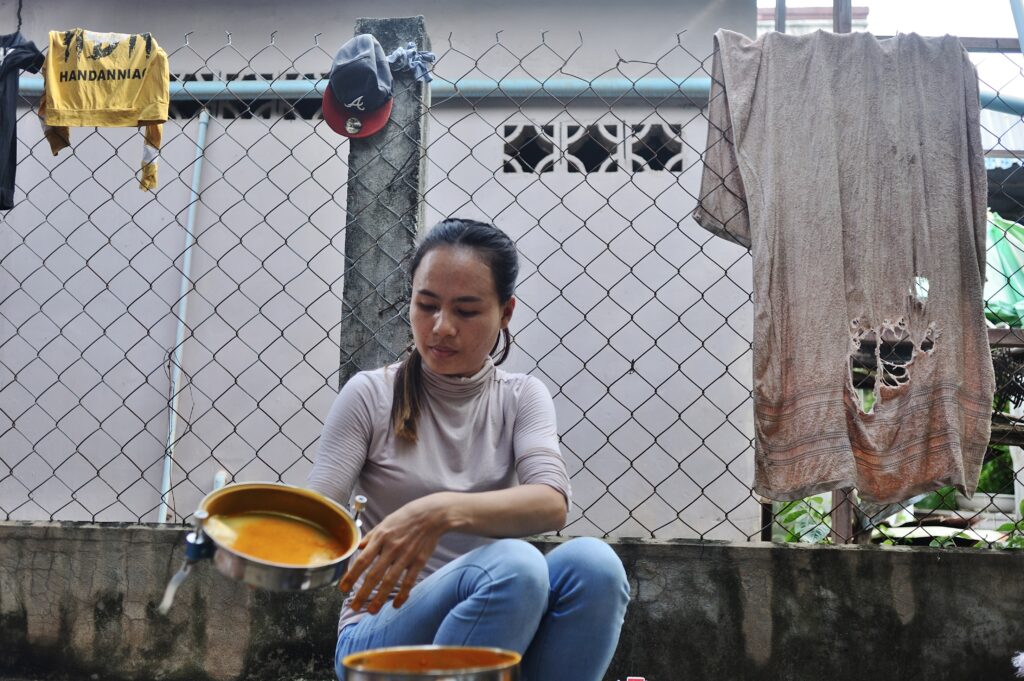
It was the perfect combination of skills and ability that allowed Reaksmey to market her natural products online and connect with her target consumers generating income for her family even in the midst of a pandemic.
Reaksmey’s experience is just another example of the important role women play in the food system. By embracing responsibility for food security and pushing the boundaries of traditional gender roles, these women are providing an example for others and showing that change is possible.

Another study from the Borgen Project about hunger in Cambodia, found that a root cause of the current hunger crisis in the country can be attributed to an unethical profit-oriented mindset and poor agriculture systems. The issue of land grabbing and exploitation of natural resources has increased due to the growing domestic and international trade on agricultural and food products, broadening the huge gap between the rich and poor and developed and developing countries.
The principle to advocate for food and nutrition as a basic right is a top priority. As a human being, one is entitled to the right to live in dignity, free from hunger, food insecurity and malnutrition.
Achieving food security and nutrition for all, and encouraging a healthy balance between socio-economic and environmental sustainability is defined by Cambodia’s Roadmap for Food Systems for Sustainable Development 2030. In order to achieve this vision, however, there is a need for increased awareness and civic engagement around current systems, unhealthy and unsustainable food, and nutritional patterns in society. Equally important is the promotion of good practices through creating visibility for existing organic and sustainable practices in the Cambodian food chain.
The real definition of the food system cannot be measured by the high digit number of big businesses and shareholders’ achievement, but the prosperity of each person involved starting from farmers, food workers, and the billions of people worldwide who depend on this industry for their livelihoods.
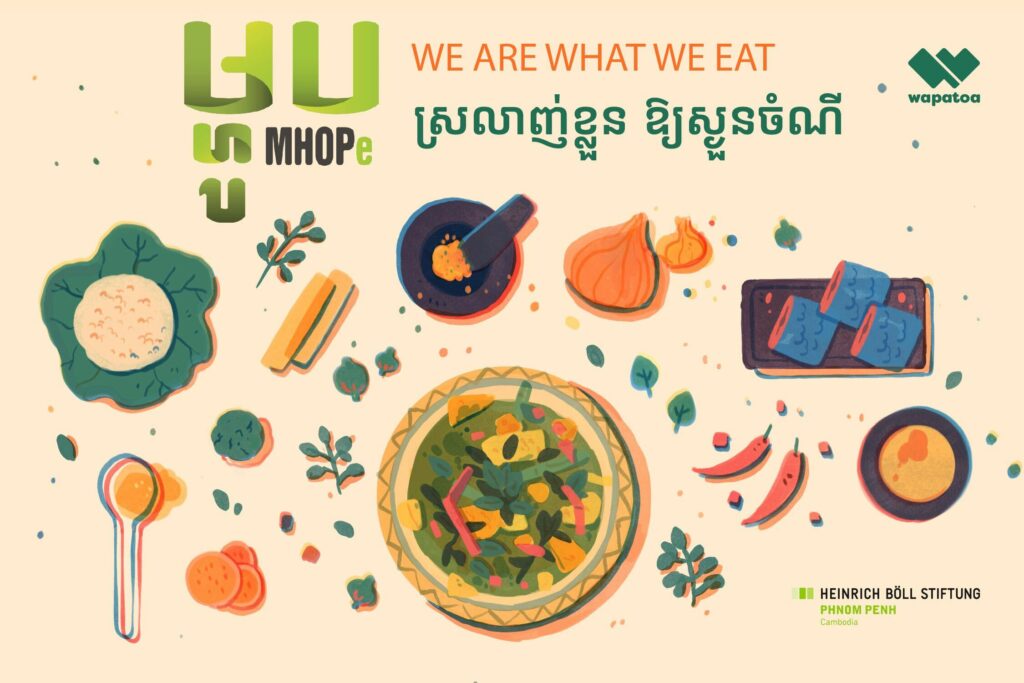
In this regard, The MHOP(e) project has been designed to strengthen awareness of the origins of food, while highlighting the individual and life stories of informal workers in the cycle, from farm to table. You can also find more information on MHOP(e) Facebook page. Join us in the journey of equal access to nutrition, as right instead of a commercial product cannot be done with you.
Disclaimer: This is a partnership article with the MHOP(e) project.



